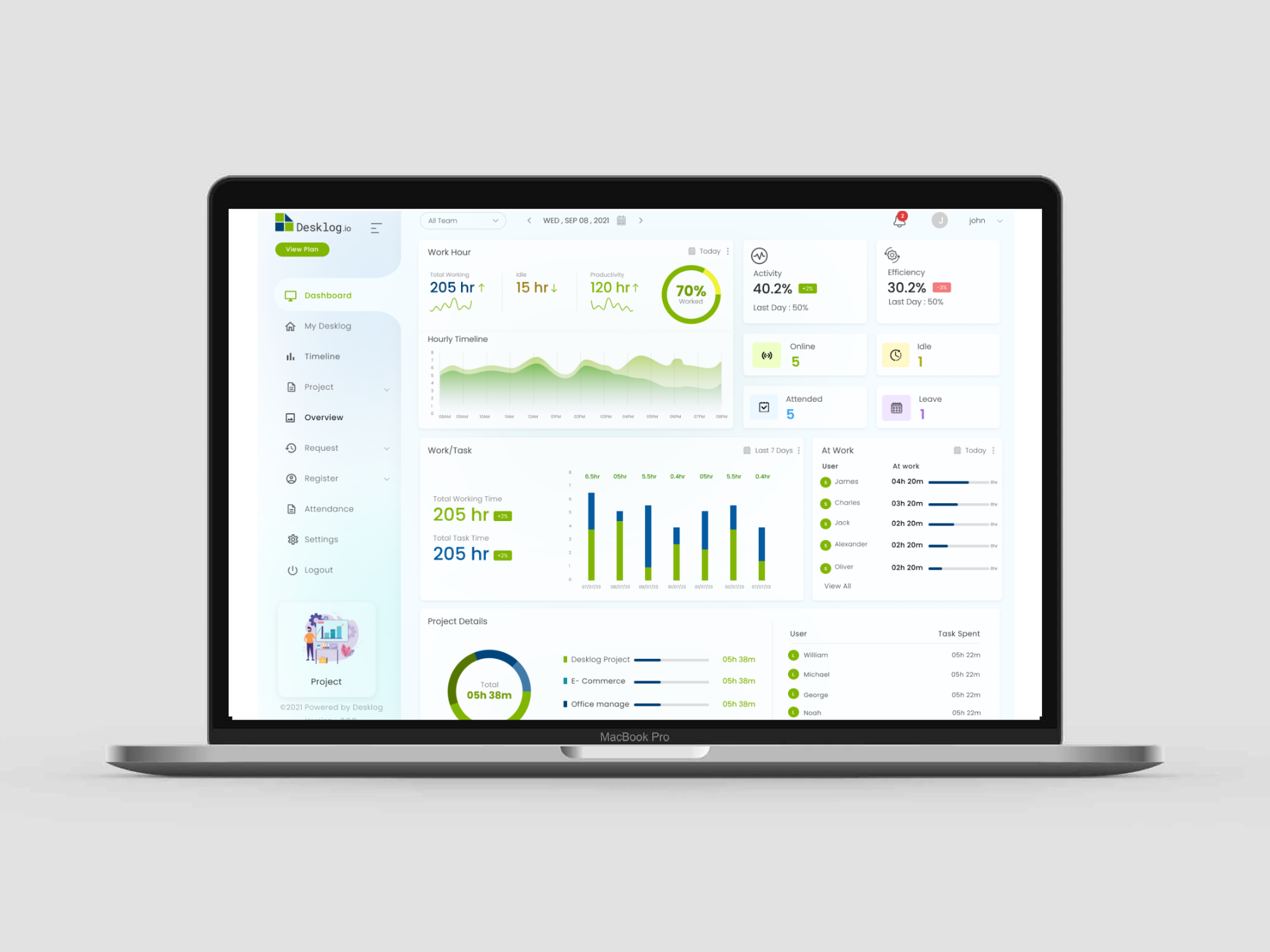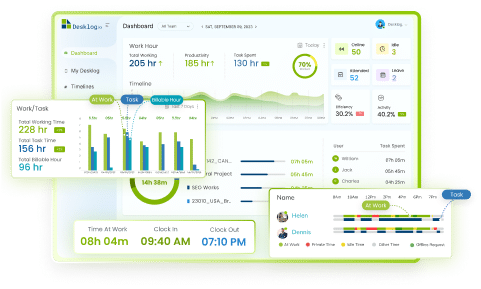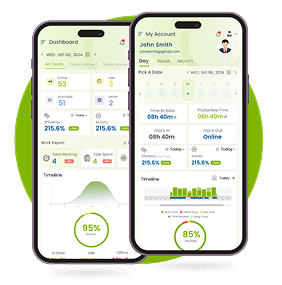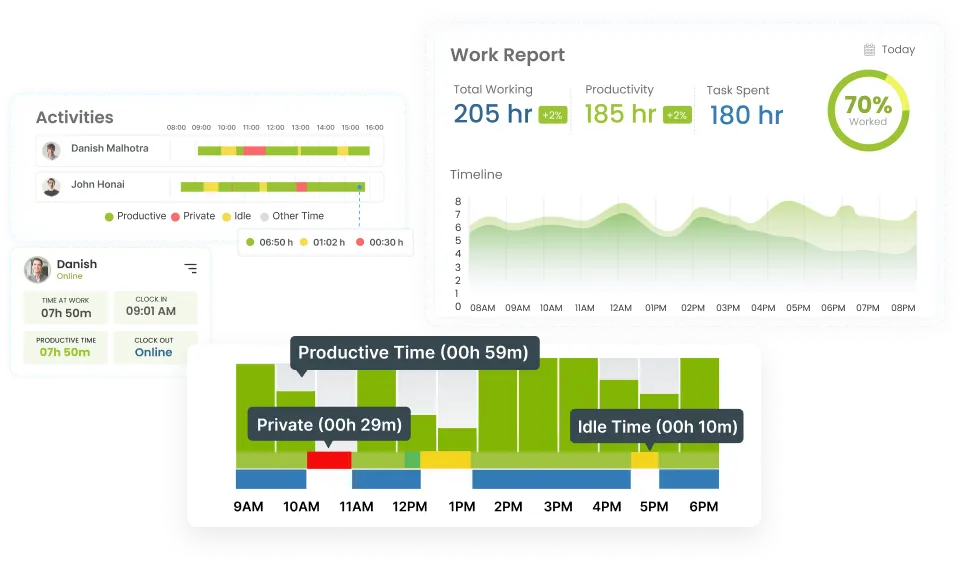Our 10 Pillars To Effectively Managing A Remote Team
Remote teams are part of most organizations today. Even though the remote working phenomenon was started by the pandemic, companies everywhere are still practicing it. Both employees and employers had to adjust to the new normal of working. Managing a remote team is far different from managing in-house teams. And many employers have realized this the hard way.
Here are our 10 pillars to effectively managing a remote team :
1. Hire Appropriately :
The right personnel can significantly ease the manager’s job. When hiring, make sure that you choose self-motivated people with a good work ethic and the skills to complete tasks on their own. Conventional hiring methods are not well suited for remote teams. You should look for circumstances in which potential hires have to prove their worth on their own. Characteristics like motivation, positive attitude, teamwork, etc are vital for a good remote worker. The employee should uphold the company values and should be genuinely passionate about working for the company.
Check out how to manage and measure productivity among remote workers.2. Provide Appropriate Tools :
Companies often take pride in stacking up their offices with the latest and most advanced hardware. Remote employees also need the appropriate tools to perform according to your requirements. You can’t expect to win Olympic gold if your athletes are running in slippers. Hardware like performance laptops, better WiFi, headsets, webcams, work station, office chairs, etc can boost the performance of your remote employees. Subscriptions to premium tools like Dropbox, Asana, Microsoft Teams, etc can also make things easier for remote teams.
Want to try our Time Tracking Software?
Try Desklog for free!

3. Perform Regular Check-Ins :
It is essential to check in with your employees and have proper conversations with them regularly. One of the biggest perks of working from the office is socializing with your colleagues. You share your daily experiences, have a few laughs, talk about common interests, and suddenly work doesn’t seem so laborious anymore. But remote teams will find it difficult to do any of these. Working remotely can often make employees feel alienated. The manager has to create communication channels to avoid the remote worker feeling remote and neglected. Your door or rather your phone should always be open for them and you must have regular face-to-face conversations with your employees.
Read more: Remote Working Tech Comapanies4. Communicate More :
Communication is an important part of managing any team, but it takes a whole new level of importance in the case of remote teams. Exceeding regular check-ins, the team’s responsibilities, tasks, obligations, wanted results, etc must be clearly communicated. Many such things are just understood without explicitly saying in office environments. But you have to deliberately force these communications on your remote teams. Communication between teammates is also vital. Doubts would easily be cleared just by asking the person sitting beside you in an office. This is not possible in remote work, and team members may feel reluctant to text or call each other. Setting clear communication guidelines can help in such cases.
5. Focus on Results :
Focusing on outcomes rather than activities is important in effectively managing remote teams. You have to clearly define the objectives and what exactly are you looking for in the output. After that, you can allow your remote teams to come up with the best course of action to achieve these objectives. This approach engages the creativity of employees and gives them an increased sense of responsibility. There is also no need to micromanage your employees in such a system.
6. Virtual Team Building :
Team building is an essential part of managing any team. But it is a little challenging in terms of remote teams. Connections are built by team members interacting with each other spontaneously. But this is not easy in terms of virtual teams. Spontaneous interactions are hard to come by when employees are not under the same roof. So you have to create virtual spaces for employees to interact with each other. Slack channels about food, music, books, or what to watch on Netflix, Virtual pizza parties or happy hours, etc are practical options to promote interactions among your remote team members.
7. Give Proper Instructions :
Although this can be applied to any job, giving proper instructions beforehand is important in the case of remote teams. Any doubts of employees can be cleared instantly in the office. They have the option to ask any of their teammates or superiors. In most offices, there will be multiple employees with expert-level knowledge in their areas. This makes it easy for others to learn new things or clear doubts. But remote teams do not have access to these. Clear instructions have to be passed to teams about their tasks, possible challenges they could be met with, and who to ask for assistance.
8. Be Mindful of Cultural and Time Zone Differences :
Remote working has opened the window to access talent from anywhere in the world for companies. But it is important to be mindful of the cultural and time zone differences between the people in different countries. Employees could have different approaches to careers and work in different parts of the world. To coordinate a global workforce, managers must be familiar with different cultures. Time zone differences can also cause communication difficulties. You should pay special attention to the work hours of remote employees in different time zones.
Also reads: Tips To Effectively Manage Remote Employees9. Allow Flexibility :
Remote employees working from their homes have to face a whole different set of challenges compared to office workers. Some may have to look after children, help with household chores, have no proper workspace, and much more. They could also be going through troubles in their personal lives. It is vital to allow flexibility to your remote employees. You may not know what your employees are going through, especially when you don’t see them face-to-face.
10. Use a Time Tracking App :
Winding Up
These are our 10 pillars to effectively managing a remote team. With the proper management, your remote team can perform on par with or even better than your in-house teams. And you can get access to the top talent from all across the globe. Follow these and make the most of your remote teams.
















